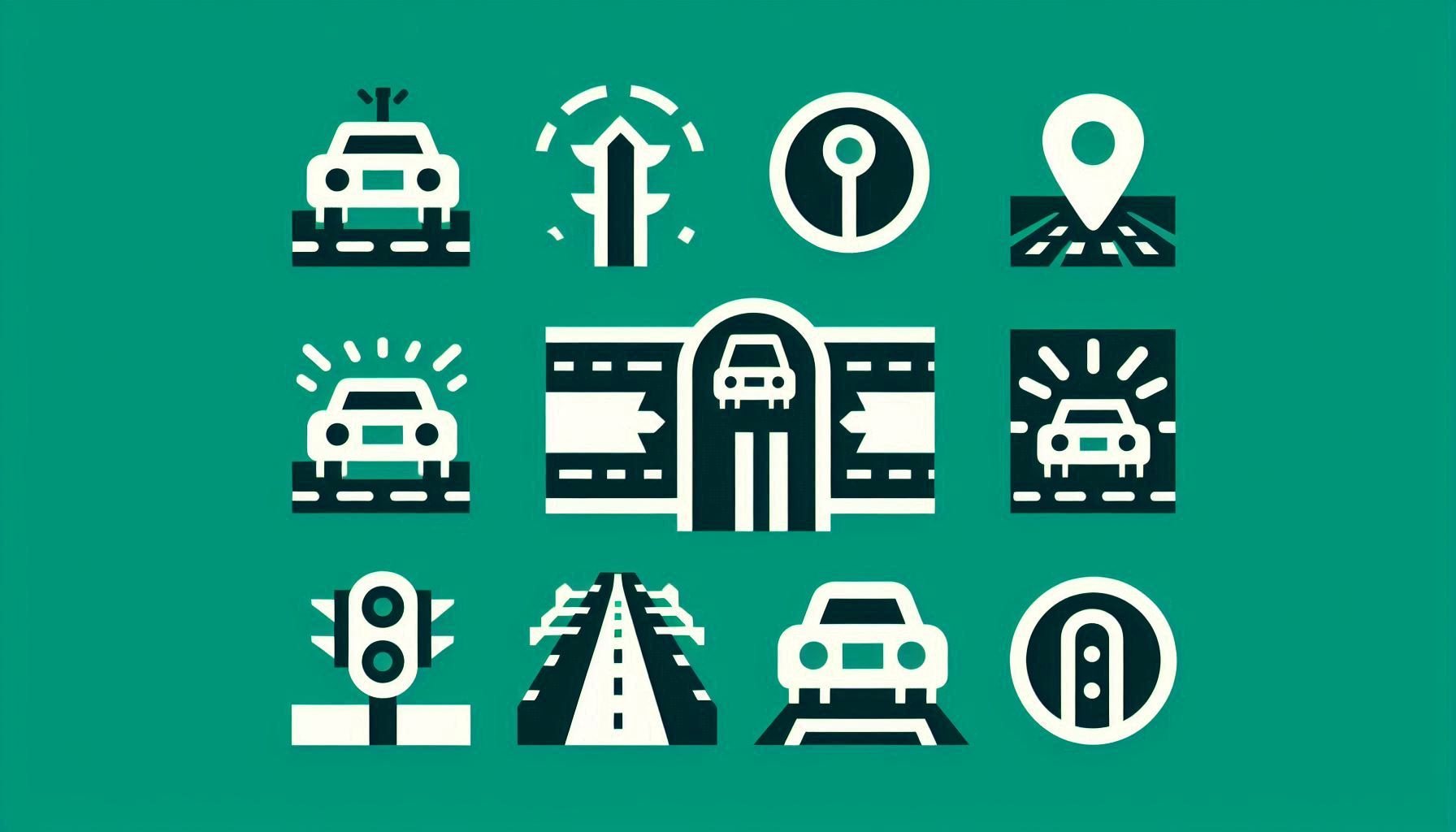Estimating Travel Demand with a Multimodal Transport Model Including E-Scooters in Iași, Romania

Downloads
Cities, even medium-sized and small ones, have become overwhelmed by traffic and congestion. Innovative solutions are required and recent studies have focused on sustainable approaches. This study aims to develop a multimodal transport model consisting of an urban public transportation (UPT) service combined with an e-scooter sharing service. The main purpose of the model is a comparison between two travel alternatives (car and UPT + e-scooter), calculating their associated levels of utility. The methodology is based on a multinomial logit model, implemented in Matlab software, using results from an online mobility survey (socio-economic characteristics of potential users of e-scooters). The additional aim is related to the assessment of the inhabitants’ availability to shift from car to multimodal service or to simple e-scooter service. The developed micromodel was applied in Iași, a mid-sized city located in the northeast of Romania. Several price strategies were analysed in order to find their influence on users’ mobility behaviour. It turned out that the price for the shared e-scooter is too high at this moment to be used for daily travel. Without a price decrease and public authorities’ involvement in facilitating the multimodality, the e-scooter remains only an entertainment activity.
Downloads
Polydoropoulou A, Pagoni I, Tsirimpa A, Tsouros I. Modelling travelers’ behavior in the presence of reward schemes offered for green multimodal choices. Data Analytics: Paving the Way to Sustainable Urban Mobility. 2019; p. 353-361. DOI: 10.1007/978-3-030-02305-8_43.
Raicu Ș, Costescu D. Mobilitate. Infrastructuri de trafic [Mobility. Traffic infrastructures]. Bucharest, Romania: AGIR Publishing; 2020.
Krygsman S. Activity and travel choice(s) in multimodal public transport systems. Ph.D. thesis. Utrecht University, Faculty of Geographical Sciences; 2004.
Clifton K, Muhs C. Capturing and representing multimodal trips in travel surveys. Transportation Research Record: Journal of the Transportation Research Board. 2012;2285(1):74-83. DOI: 10.3141/2285-09.
Reck D, Martin H, Axhausen K. Mode choice, substitution patterns and environmental impacts of shared and personal micro-mobility. Transportation Research Part D: Transport and Environment. 2022;102. DOI: 10.1016/j.trd.2021.103134.
Krauss K, Krail M, Axhausen K. What drives the utility of shared transport services for urban travellers? A stated preference survey in German cities. Travel Behaviour and Society. 2022;26:206-220. DOI: 10.1016/j.tbs.2021.09.010.
Crist P. The innovative mobility landscape. The case of mobility as a service. International Transport Forum. 2021; p. 9, 62. https://www.itf-oecd.org/sites/default/files/docs/innovative-mobility-landscape-maas.pdf [Accessed 3rd Feb. 2023].
Ma Q, et al. Connecting metros with shared electric scooters: Comparisons with shared bikes and taxis. Transportation Research Part D: Transport and Environment. 2022;109. DOI: 10.1016/j.trd.2022.103376.
Sanders R, Branion-Calles M, Nelson T. To scoot or not to scoot: Findings from a recent survey about the benefits and barriers of using e-scooters for riders and non-riders. Transportation Research Part A. 2020;139:217-227. DOI: 10.1016/j.tra.2020.07.009.
Tuncer S, Brown B. E-scooters on the ground: lessons for redesigning urban micro-mobility. Proceedings of the 2020 CHI Conference on Human Factors in Computing Systems. 2020; p. 1-3. DOI: 10.1145/3313831.3376499.
James O, et al. Pedestrians and e-scooters: An initial look at e-scooter parking and perceptions by riders and non-riders. Sustainability. 2019;11(20):1-2. DOI: 10.3390/su11205591.
Mitra R, Hess P. Who are the potential users of shared e-scooters? An examination of socio-demographic, attitudinal and environmental factors. Travel Behaviour and Society. 2021;23:100-107. DOI: 10.1016/j.tbs.2020.12.004.
Fearnley N, Berge SH, Johnsson E. Patterns of e-scooter use in combination with public transport, Transport Findings. 2020; p. 1-3. DOI: 10.32866/001c.13707.
Kagerbauer M, Hilgert T, Schroeder O, Vortisch P. Household travel survey of intermodal trips – Approach, challenges and comparison. Transportation Research Procedia. 2015;11:330-339. DOI: 10.1016/j.trpro.2015.12.028.
Bakogiannis E, Vlastos T, Athanasopoulos K, Vassi A. Exploring motivators and deterrents of cycling tourism using qualitative social research methods and participative analytical hierarchy process (AHP). Sustainability. 2020;12(6). DOI: 10.3390/su12062418.
Hamadneh J, Jaber A. Modeling of intra-city transport choice behaviour in Budapest, Hungary. Journal of Urban Mobility. 2023;3. DOI: 10.1016/j.urbmob.2023.100049.
Jie F, et al. Factors affecting the adoption of shared mobility systems: Evidence from Australia. Research in Transportation Business & Management. 2021;41. DOI: 10.1016/j.rtbm.2021.100651.
Esztergar-Kiss D, Tordai D, Lopez Lizarraga J. Assessment of travel behavior related to e-scooters using a stated preference experiment. Transportation Research Part A: Policy and Practice. 2022;166:389-405. DOI: 10.1016/j.tra.2022.11.010.
Shokouhyar S, Shokoohyar S, Sobhani A, Gorizi AJ. Shared mobility in post-COVID era: New challenges and opportunities. Sustainable Cities and Society. 2021;67. DOI: 10.1016/j.scs.2021.102714.
Wikipedia. Iași. https://ro.wikipedia.org/wiki/Ia%C8%99i [Accessed 25th Feb. 2023].
Romanian National Institute of Statistics. http://statistici.insse.ro:8077/tempo-online/#/pages/tables/insse-table [Accessed 11th Oct. 2022].
Dragu V, Roman EA. Accesibility of urban public transport network component of sustainable development. Quality Research Center. 2011. p. 109-117. https://msdjournal.org/wp-content/uploads/vol3issue1-21.pdf [Accessed 5th Mar. 2023].
Roșu L. Metode de analiză a accesibilității populației la mijloacele de transport în comun. studiu de caz: Municipiul Iaşi [Methods of analyzing the population's accessibility to public transport. Case study: Iasi Municipality]. Geographia Napocensis. 2013;7:1-4.
Ghionea F. Transport urban. Fenomenul [Urban transport. The phenomenon]. Bucharest, Romania: MATRIX ROM print; 2005.
Copyright (c) 2023 Ovidiu-Laurențiu Harpalete

This work is licensed under a Creative Commons Attribution-NonCommercial 4.0 International License.




















